Fatty acids
How good fatty acids support breeding work and sport dogs?
A German Shepherd is a working dog – or sports dog – how we want to interpret it. In sports, IGP requires a healthy structure and musculature in dogs. As dog handlers, we know how bone and joint health affect a dog’s performance, as well as the quality of life. I also believe that enthusiasts and breeders agree that hereditary health factors, like skeletal or skin health, should be taken into account as a precaution in breeding work. Here essential good fatty acids come into the picture.
Did you know that fatty acids are essential to dogs?
For dogs, essential fatty acids are omega-3 and omega-6 acids, which are required to thrive. While both are important to a diet, many nutritionists think that commercial pet food contains too many omega-6s but not enough “good fat” omega-3s. Do you know how essential fatty acids work in a dog’s metabolism? And how can you make sure your dog also gets essential good fatty acids, omega-3?
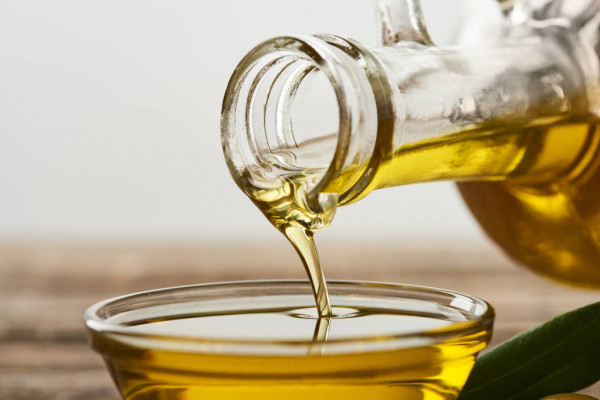
The dog is a carnivore, not a vegetarian
The body of an active dog needs proteins and fats for energy production and fluids for metabolism and optimal food absorption. Dogs’ metabolism also needs fatty acids for different needs, which it can receive e.g., fish oil. Indeed, dogs’ fat metabolism uses animal fats effectively. Therefore we can support our sport dogs and breeding work with essential good fatty acids.
High-protein and high-fat foods are known to improve the endurance of hard-working dogs. Excessive carbohydrate levels, respectively, impair the effectiveness and recovery of the dog, especially after prolonged exercise. Carbohydrates can be beneficial for a dog in short-term performance. As a rule, when fed too high in carbohydrates, dog endurance and performance deteriorate.

Fat is a dog Gourmet
A dog does not need variation in food like humans. Adult dog food is high in energy when the average amount of protein and fat is 28/16. If your dog needs more mass, or it should be slimmer, only increase or decrease the amount of its current food. If the amount of food cannot be increased or decreased, it is justified to change the quality of the food to either fattier or less fatty. You can also add supplements like essential good fatty acids. Sometimes feeding a dog requires a higher fat content. In this case, the dog should be accustomed to the added amount of fat gradually. However, there should not be too much fat. In addition, the amount of fat must also be in balance with the amount of protein. Notice that the addition of protein increases dogs’ need for fluid.
How good fatty acids protect a dogs' skin and joints and prevent inflammation?
When choosing a suitable food, especially for a breeding bitch or a sport dog, it helps if you know the nutritional requirements and essential good fatty acids. For the right product, examine the markings in the dog food product description. It is necessary to invest in the amount of protein and fat, but also their quality. Animal protein is best for a dog, so fresh meat and offal are a natural part of a dogs’ diet. Protein intake is essential for gaining and maintaining muscle mass because nearly half of muscle composition is protein. The protein also protects the dog from many injuries and acts as a booster of the immune defense. Many quality dog foods contain the necessary nutrients, vitamins, and trace elements, but there are situations where supplements, especially essential good fatty acids, help.
Have you heard of Nurtolin fatty acid supplements?
The range of supplements is already extensive, as is the variety of their quality. The Nutrolin® series, developed and manufactured in Finland, is one of the highest quality products. All the ingredients in Nutrolin are pharmaceutical ingredients – including the same supplements that are good for humans.
The best combination for the well-being of dogs' joints
Omega-3 fatty acids and joint nutrients together are for supporting the joints. Nutrolin® Hip & Joint is the only joint-product on the market that is rich in both. The combination of fish oil and joint nutrients is effective because Omega-3 fatty acids and joint-nutrients of fatty-acid preparations reinforce each other. They control inflammation and support joint tissue regeneration. Antioxidants such as natural vitamin E protect the body from the oxidation of fats and supplement the effect of fatty acids by reducing the oxidative stress associated with inflammation.
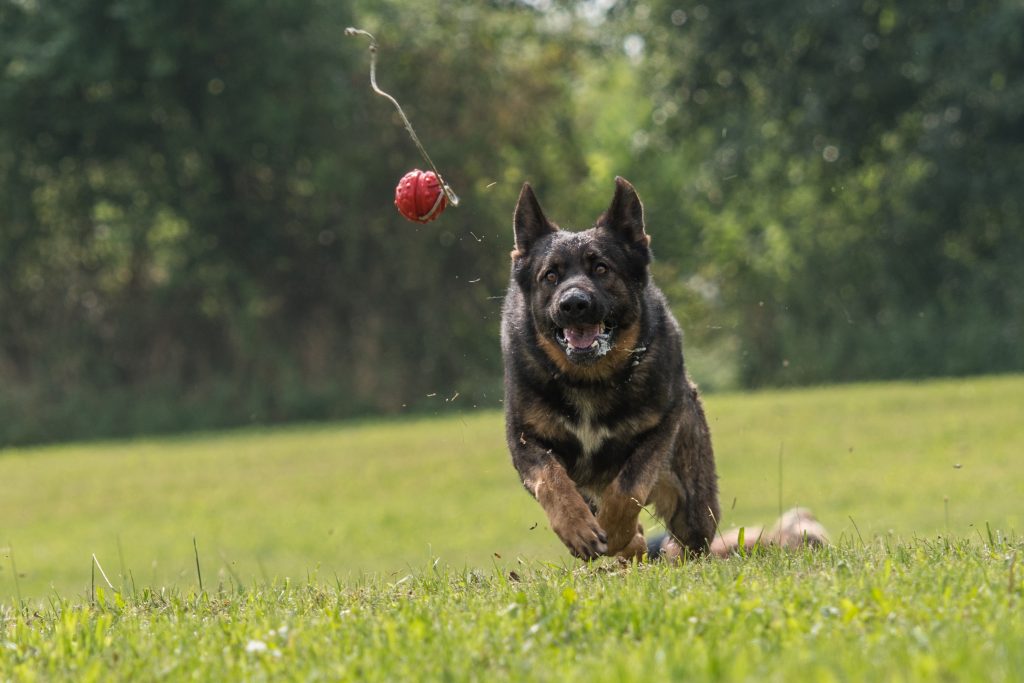
Help for skin problems
Essential fatty acids, especially Omega-6 linoleic acid, are needed to maintain the skin’s natural protective layer. A poorly functioning permeation barrier causes the skin to dry out and predisposes to skin problems. Nutrolin® Skin & Coat contains linoleic acid fatty acids: alpha-linolenic acid, gamma-linolenic acid (GLA), and stearidonic acid (SDA), as well as natural vitamin E. If the amount of free fatty acids increases, absorption of minerals and trace elements may impair. If your dog is getting particularly high-fat foods, it may be appropriate to add calcium, copper, manganese, iron, and zinc to the diet. Zinc also helps to maintain the condition of the skin and prevents splitting of the paws and nails.
Attention to magnesium and vitamin B
Magnesium is in interaction with calcium and, therefore, it works for human muscle cramps, and the same goes for dogs. Lack of magnesium in a dog can manifest as cramps and muscle dysfunction, and even loosening of structure such as ligaments. The need for vitamin B often increases in sports dogs during strenuous exercise. Because B vitamins are water-soluble, they are eliminated from the body naturally, so it is safe to use them in a regimen of up to 5-10 times. Stress exposes particularly joints and connective tissues and can cause damage over time. Joint health can be supported by adding glucosamine, chondroitin, and MSM into food.
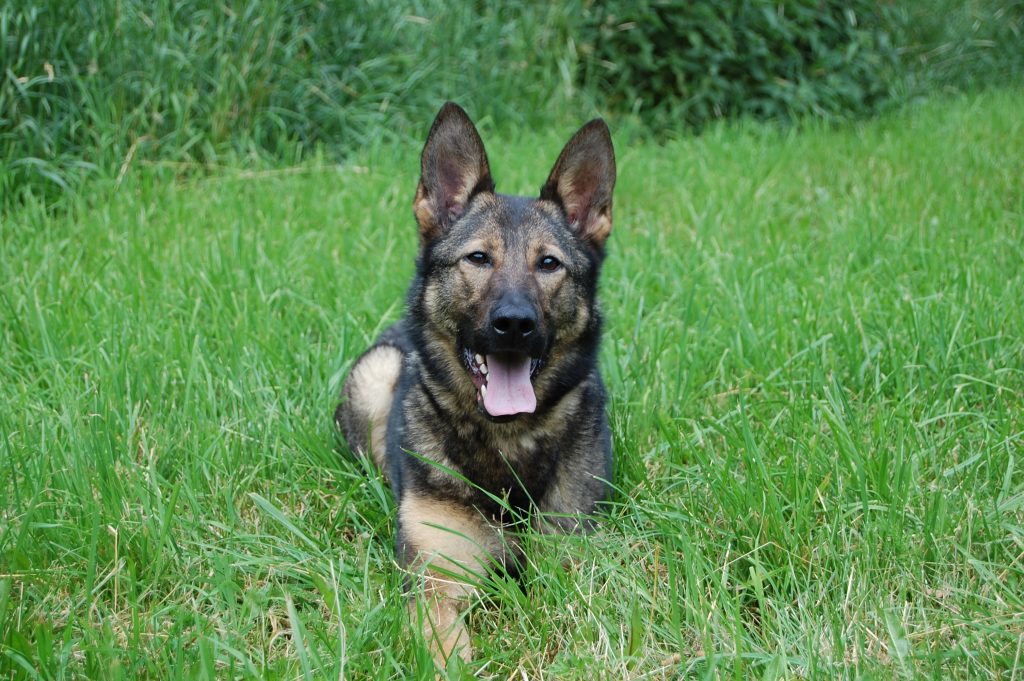
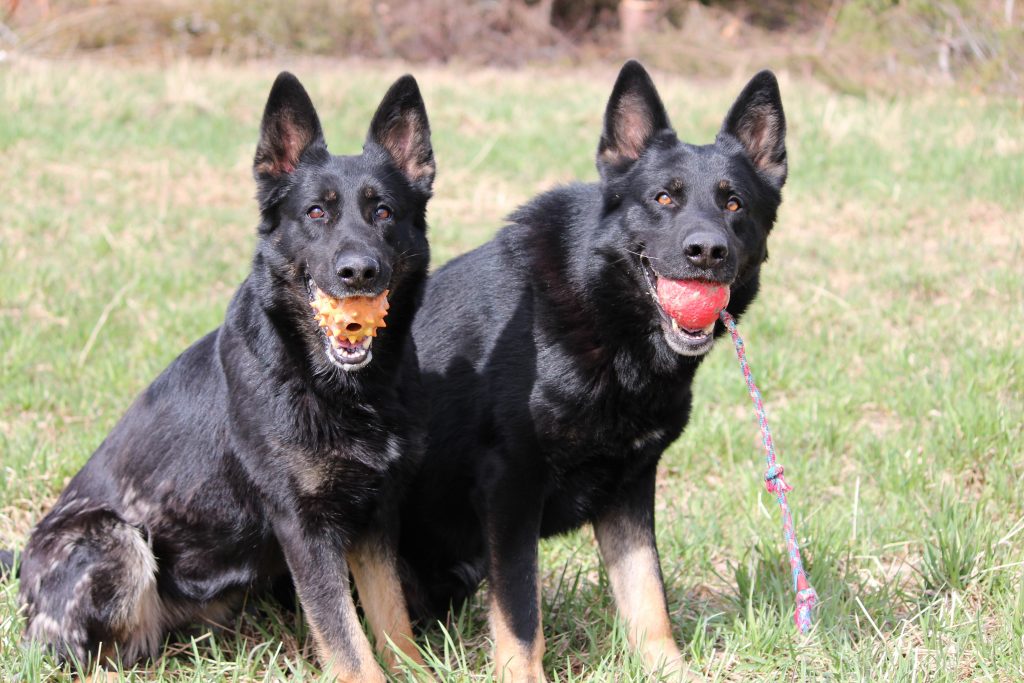
Have you heard of sport dog microtraumas?
Sport dogs may develop so-called microtraumas that cause gradual deterioration of articular cartilage. Nutrolin® Hip & Joint is a pharmaceutical-grade fish oil rich in EPA, ETA, DPA, and DHA fatty acids that protect the joints. Omega-3 fatty acids, along with joint nutrients (glucosamine, chondroitin, and MSM), reduce inflammation, protect joints structures, and even slow the progression of osteoarthritis. Vitamin E enhances the effect of fatty acids and joint nutrients. The effective Nutrolin® Sport is rich in Omega-3 EPA and DHA fatty acids, which repair the tissue damage caused by exercise. Beta-carotene, ubiquinone, and vitamin E enhance the effect of fatty acids by reducing oxidative stress, which, in turn, helps the dog recover from exertion.
Everyone sometimes needs a little support!
To help the dog owner, Nutrolin® products, which are 100% natural fatty acid products and whose product development bases on strong scientific know-how, have been developed in Finland to support the well-being of dogs. They contain the appropriate fatty acids, either from top-quality fish oil or from selected vegetable oils. Nutrolin® products include more than three times more Omega-3 fatty acids than regular salmon oils. In addition, fat acid compositions have completed with nutrients that effectively support the action of fatty acids.
Fact: If all the good fatty acids were in the same bottle, the effect would by no means be the best.
Why? Because fatty acids from different sources compete with each other in metabolism. Therefore, precision oils for different ages and needs work most effectively.
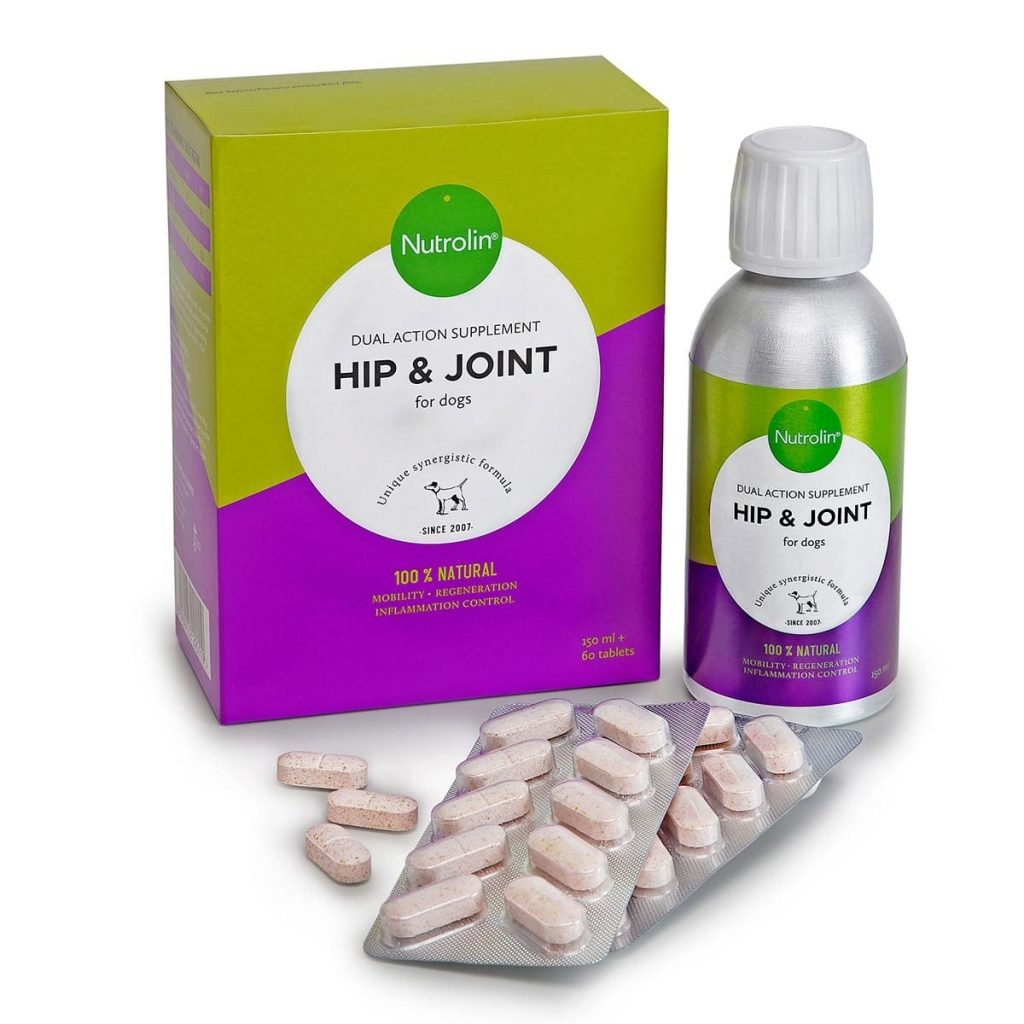
Nutrolin® Skin & Coat benefits all dogs while it helps your dogs’ skin and paws to work better and improves the quality of the coat. For better movement, Nutrolin® Hip & Joint restores joint mobility and reduces inflammation and pain. For sport- and working dogs, Nutrolin® Sport is an energy restorer for all active dogs.
How about older dogs – do you have a senior? Check out the power of the veterans’ oil! Nutrolin® Senior supports the health of an aging dog, and e.g., heart function.
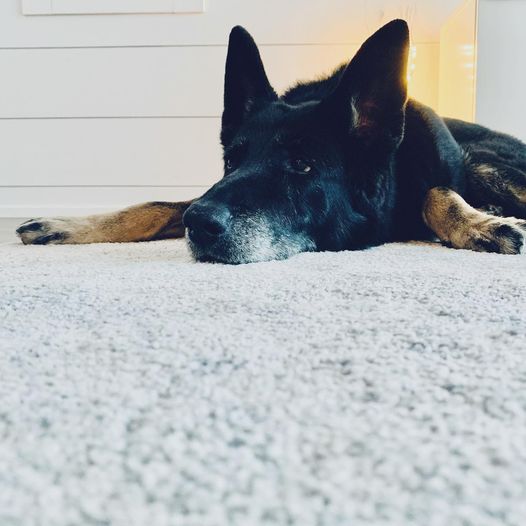
Are you a breeder?
You may be interested in Nutrolin® Puppy & Mom, as Omega-3 DHA plays a significant development role in puppies’ brains, eyesight, and sense of smell. Early-secured Omega-3 fatty acids from fish oil can also reduce the risk of dogs developing atopy in their adulthood.
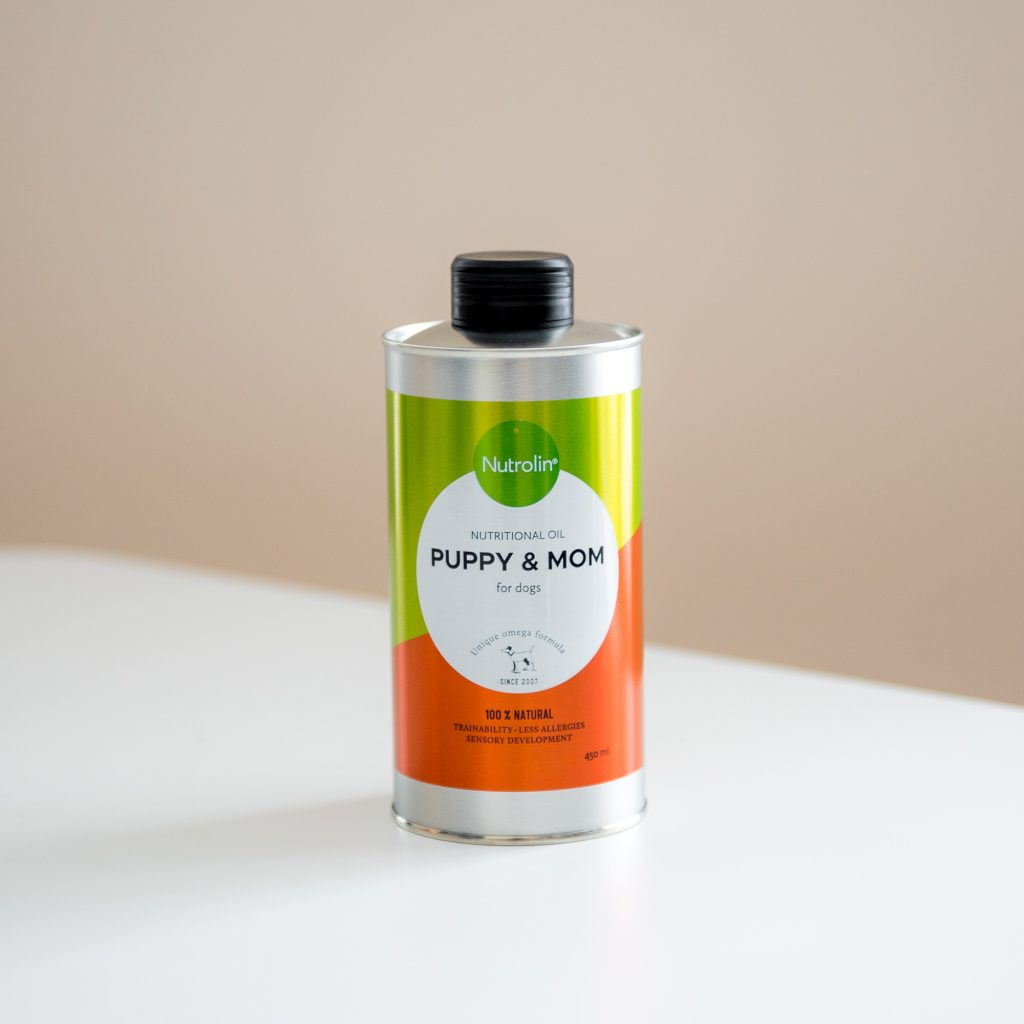


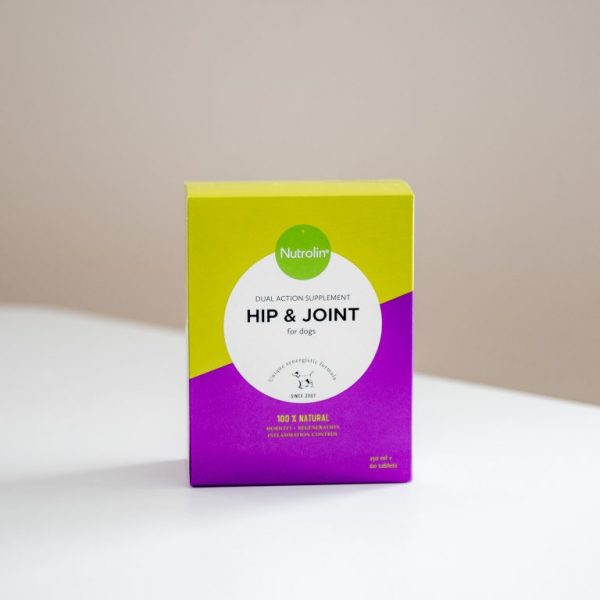



One response
Thank you for the correction. English is not my native language, so mistakes happen for 100% sure.